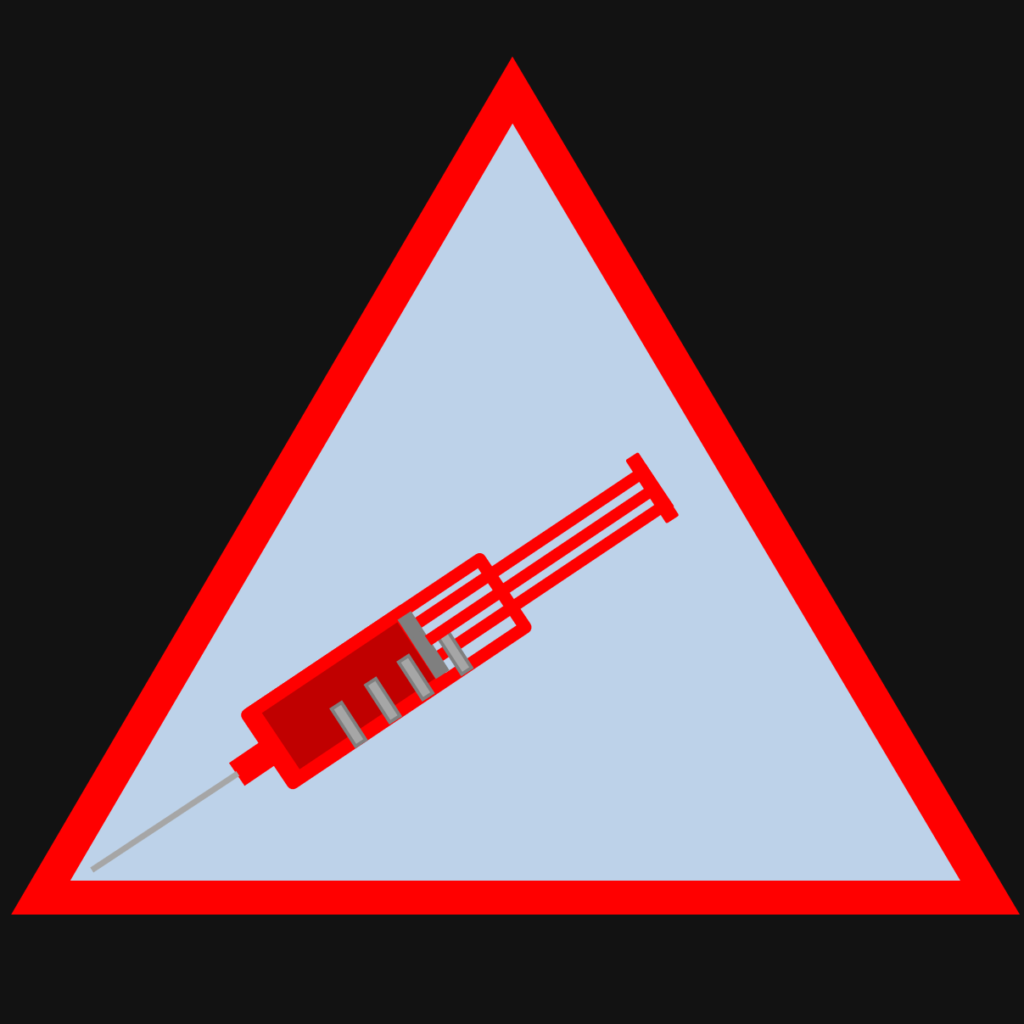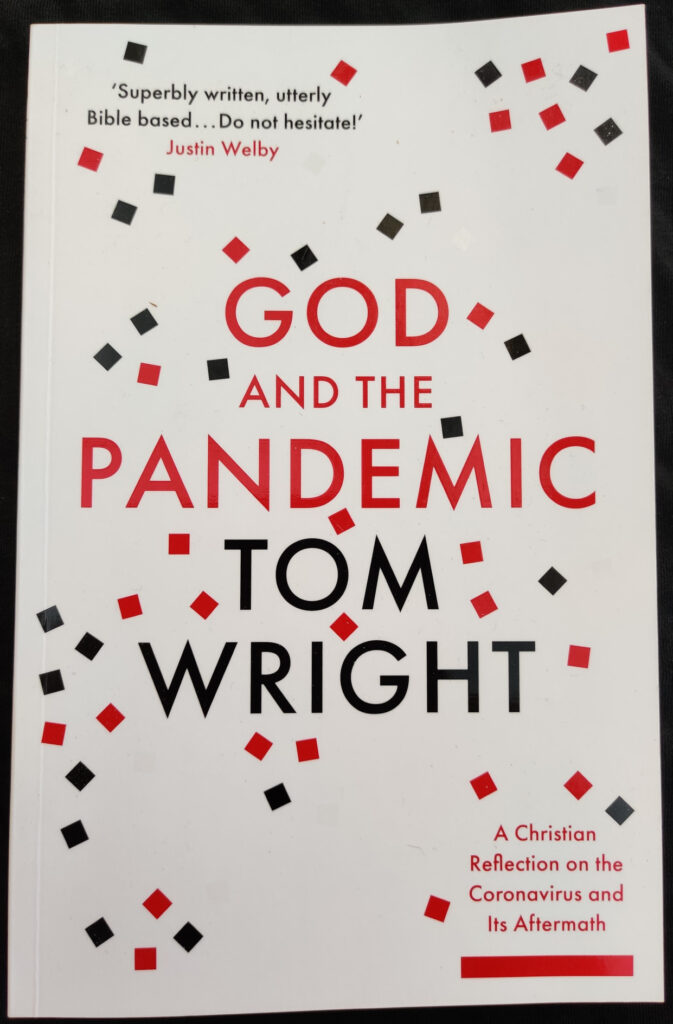Conclusion: Covid Christianity
March 20th 2021

After a year of post-accident reflection posts, at least one per month, this is my longest and last. The theme was very appropriately suggested to me, so now it’s time to think less selfishly.

Is the Covid Pandemic a “sign” for Christians? My position as a non-authorised, self-approved, sub-par person with mental health issues is; probably not, but it may be a useful reminder of our call to action for all. Even in this area, Tom Wright provides highly valuable information from a faithfully strong position.
In my past reflection posts, I describe how personal suffering led me to the, “Why me?” question and then after reflecting on Job’s suffering dialogue with God, to “Who God Is” awareness.
During the Covid Pandemic there is unity in joint suffering. Many have shared severe suffering as well as lockdown restricted freedoms.
Our Covid pandemic questions started in a similar way to my suffering questions. “Why us?” Some Christians are now asking, “Is it a sign?” I believe it’s time to be less selfish and develop a New Covenant approach to our thinking.
Different “W” questions might be more appropriate for Christians now. “Who needs help?”, “What work would help the world now?”
www.itsaboutmorethanme.com
The world view seems to be that we can reason ourselves out of anything. The cognitive elite are required to offer an intellectual evidence based and somehow “proven” response. Currently we often hear that, “The science says…” There has been good work undertaken by many academics. How many professors are there?
I don’t think this cognitive approach works theologically, despite claims of being biblically sound. There is as much disagreement between biblical scholars as I have found to exists between psychologists.
Simple unreasoned opinion is even more of a problem. I’ve read many books on themes that really matter to me recently and I’d love to find some mid ground accessible reading that I can still trust without endless references to knowledge, connections and depth that are beyond my damaged brain.
Christians seem to respond to suffering, including Covid, in the same way as people have dealt with these “signs” and themes previously.
1. It’s a sign of the end of the world.
2. It’s punishment, so who’s fault is it?
3. It’s time to exploit the situation and make a point
Humans have frequently thought like this but seldom get things right.
“Hypocrites! You know how to interpret the appearance of the earth and the sky. How is it that you don’t know how to interpret this present time?” (John 12:56)
End of the world?
A selfish Christian response might be, “Death is not so bad if you believe in an afterlife. We’ll be OK!” If Covid is a sign, how confident are we that it is about the End of the World?
“But about that day or hour no one knows, not even the angels in heaven, nor the Son, but only the Father.” (Mark 13:32)
It might be better if Christians focused on God within us now!
“Once, on being asked by the Pharisees when the kingdom of God would come, Jesus replied, “The coming of the kingdom of God is not something that can be observed, will people say, ‘Here it is,’ or ‘There it is,’ because the kingdom of God is in your midst.‘” (Luke 17:20-21)
Punishment, blame and fault?
In terms of this pandemic the Chinese got the worst of this flawed approach. It is often justified by Old Testament thinking.
“When a trumpet sounds in a city, do not the people tremble? When disaster comes to a city, has not the LORD caused it?” (Amos 3:6)
I believe we need to think differently now. Don’t get me wrong. I do not dismiss the Old Testament. It is a fantastic source of learning. It’s also powerful evidence of God working with his creation over time and it leads us to Jesus.
We are in a different place and time now. Look up Jeremiah 31:31-40 in the Old Testament and we are reminded about a New Covenant.
Should we start living as if we believe and want, “your will be done on earth as in heaven.” (Matthew 6:10)
Relating suffering to sin can be decidedly unhelpful. Job’s comforters kept telling him that his problems were because of his sin. They weren’t. Health has been similarly misjudged.
“His disciples asked him, “Rabbi, who sinned, this man or his parents, that he was born blind? “Neither this man nor his parents sinned,” said Jesus, “but this happened so that the works of God might be displayed in him.” (John 9:2-3)
I have learned myself that suffering has changed me, arguably for the better.
“And the God of all grace, who called you to his eternal glory in Christ, after you have suffered a little while, will himself restore you and make you strong, firm and steadfast.” (1 Peter 5:10)
Time to exploit the situation and make a point?
Half Truths for Schools: Some pupils have struggled with separation from peers during lockdown. Others may have actually done better in an environment where they can learn at their own pace.
Teacher instructions can easily be repeated online, whereas in the classroom is not so easy to talk to all learners relevantly and simultaneously given different progress rates and varied levels of understanding in any one moment.
Politicians now have an excuse/justification to run schools differently and cheaper.
Half Truths for Churches: All of this pain, loss and suffering has made people realise their need for God. We can do worship online so we don’t need to maintain places of worship. There are some great CD’s and online videos to use. More people can get involved virtually.
Our increasingly secular society and politicians may no longer need to value such a costly visual and actual Christian presence.
I do think that learning from the past is important. The NHS should indeed be fully funded. However, we need to make sure that our response is not selfish and exploitative.
For me these “signs” should remind Christians of the need to work with God and respond appropriately.
These “signs” are best understood as Warnings △, rather than Orders ○.
God continues to give people choice and we make mistakes. We are sinful. But he seeks relationship rather than string puppets.
There may be a call and need for action but there are problems and barriers ahead.
Barriers are too big. I won’t make any difference. Post-accident I became increasingly aware that my disabilities made me of little value to the institutional church but… the Church of God accepts me as I am. God can use all of us and with Him, no problem is too big.
Outstanding results can come from even the smallest of contributions. Remember the loaves and fish. (John 6:1-14) We are in it together, with God by our side.
When I use the word “church” I am usually thinking of the institution of the church rather than any single local community. I think it might be more helpful for me to think of the church as the Global family of God, irrespective of denomination.
Barriers -there are too many locked doors in the way.
In the Old Testament, God was over the waters (Psalm 29:3) and heard with a fiery burning bush (Exodus 3:4) and as a still small voice in the air. (1 Kings 19:12) All very elementary, the spirit of our omnipresent God was, well… everywhere.
Now in the New Testament we have the walking talking body of Christ. As I write we approach Easter. Jesus reminds us that with the power of God, barriers can be dealt with.
Post resurrection, a secure barrier and guard could not prevent the planned and foretold resurrection on the third day. (Matthew 27:66)
Doors were locked for the fear of people. Yet Jesus made his way to be with His frightened disciples. (John 20:19)
He got to them through locked doors a week later too. (John 20:26)
Many have felt close to God in their own home during lockdown. With New Covenant thinking we need to remember that with God, barriers can be dealt with, but we must play our part to help those in desperate need.
We are now his body (1 Corinthian 12) and I am encouraged by verse 22, “On the contrary, those parts of the body that seem to be weaker are indispensable.”
An excellent song brought to my attention by a reader of this post.
Living near Eyam I am regularly reminded of the cost of helping in relation to viral infection and disease. Many Christians throughout history have demonstrated selfless love for others by their actions, as demonstrated by Jesus.
It’s all too much, I’m just worn out, fed up, sad and depressed.
Being sad is human, as demonstrated by Jesus. God knows sadness. Post-accident a member of clergy highlighted to me that the Psalms are particularly helpful for people suffering in a whole variety of ways. They were.
Sadness is natural during pandemic. It’s not wrong to be sad. Jesus cried for Lazarus (John 11:35), was overwhelmed with sorrow at Gethsemane (Matthew 26:38) and of course the cross. (Luke 23: 26-43) Was Jesus quoting from Psalm 22 on the cross? The whole book of lamentation is about expressing grief…
A call to prayerful action
Prayer has not been easy at times post-accident. I’ve had periods where God has felt very distant. Even Jesus has felt this too. (Matthew 27:46) But God can help with our prayer.
“In the same way, the Spirit helps us in our weakness. We do not know what we ought to pray for, but the Spirit himself intercedes for us through wordless groans.” (Romans 8:26)
As ever the Lord’s prayer (Matthew 6: 5-15) is the go-to daily guide for prayer that’s remarkably “tailored” to every context I can imagine. In terms of the three themes described here they are all covered.
Forgiveness for anything we’ve done wrong. That’s our part in the sin bit included.
Thy kingdom come. That’s what we want for the world bit.
Thy will be done. That’s our call for action and what we should do in prayer with God, immediately.
Lectio 365 and other Peter Greig content helps us with the simple PRAY acronym. Pause, Rejoice, Ask and Yield. We should rejoice in who God is and we are naturally good at asking for things.
As such, being simple, I really need just two signs, Stop and Yield.

We need to be part of Gods answer to our prayers. We should behave as Jesus demonstrated.
“Again Jesus said, “Peace be with you! As the Father has sent me, I am sending you.” (John 20:21)
Covid may be coming to an end but much of our work is only just beginning.
I have had to accept that for me, rehabilitation does not mean full recovery of body. I have had to accept where I am and believe in an ever better future, in his timing.
“Now it is God who has made us for this very purpose and has given us the Spirit as a deposit, guaranteeing what is to come. Therefore we are always confident and know that as long as we are at home in the body we are away from the Lord. We live by faith, not by sight. We are confident, I say, and would prefer to be away from the body and at home with the Lord. So we make it our goal to please him, whether we are at home in the body or away from it.” (2 Corinthians 5:6-9)
I will now need to move from reflections that focus on self to a less selfish focus. Hopefully, post-accident and post-lockdown a new post-reflection period of posts.
At last. Finished.